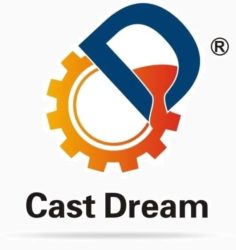Precision casting, also called lost-wax casting, is a accuracy manufacturing process used to generate sophisticated and complex metal components. Below are some crucial factors that influence the cost: The primary cost in investment casting is the metal material employed.
The weight of the metal material is normally greater than the conclusive dimension of the device owing to the casting method.
Design engineers select metals based on end-use demands. Materials like stainless steel, iron, aluminum, and specialty alloys are chosen for their particular properties.
Market prices for metals fluctuate due to factors like need, supply, economic conditions, and source availability. For example, titanium is more high-priced than aluminum.
Working with a casting foundry consultant helps improve material choice and cost estimation.
Design Complexity:
The complication of the layout significantly affects the cost. Intricate structures may require extra processes and treatments.
Complex designs can involve supplementary finishing move, which add to the all round investment casting price.
Casting Yield:
The yield refers to the proportion of usable material acquired from the casting process.
If the yield is 45%, the cost for each kilogram of investment casting increases by 0. 3 yuan for each a percentage point reduction in yield.
For instance, if the investment casting price per kilogram of shell material is 9 Rmb (approximately $2. 53 Usd), the real price per kilogram of the final device will fluctuate significantly based on the casting yield. With a 45% yield, everything cost becomes 20 Rmb (due to material wastage)






